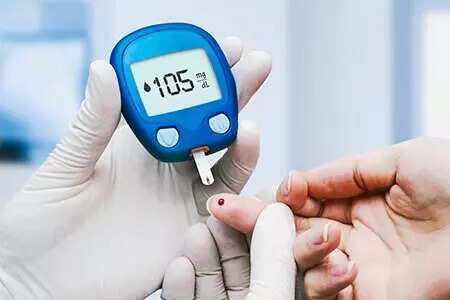- Health IT
- 2 min read
Researchers Develop Tool to Identify the Most Effective Treatment for Type-2 Diabetics
A team of researchers from the University of Exeter has developed an innovative tool to help identify the most effective glucose-lowering drugs for people with type 2 diabetes.
A team from the University of Exeter, in collaboration with the UK's public health agency, the National Institute for Health and Care Research (NIHR), has developed an innovative digital tool to identify the most effective glucose-lowering drugs for people with type 2 diabetes.
The NIHR-funded study, published in The Lancet, revealed that only 18 per cent of type 2 diabetes patients in the UK have been treated with the most effective glucose-lowering drug for their condition. Diabetes-related complications not only devastate lives but also cost the UK healthcare system £6.2 billion (around ₹55,800 crore) annually.
Currently, six major types of glucose-lowering drugs are available in the UK, with Metformin being the most commonly prescribed first-line treatment for type 2 diabetes. However, their effectiveness varies widely, and until now, it has not been possible to determine the best treatment for each patient.
Lead researcher Dr. John Dennis, Associate Professor at the University of Exeter, said, "For the first time, our model allows people living with type 2 diabetes to quickly identify the best treatment to manage their blood sugar levels, helping reduce their risk of diabetes complications. This offers a major advance over the current approach to choosing diabetes medications."
Professor Andrew Hattersley, also from the University of Exeter, added:
"Critically, our model can be implemented in clinical care immediately and at no additional cost. This is because it uses simple measures such as sex, weight, and standard blood tests that are performed routinely."
The tool was developed and tested using data from one million people with type 2 diabetes in the UK, linking general practitioner (GP) and hospital records. Its accuracy was further validated with data from clinical trials.
During the research, modeling showed that starting patients on the drug recommended by the new tool could lead to significant reductions in blood glucose levels after one year—by an average of approximately 5 mmol/mol.
Furthermore, according to the study, these improvements could nearly double the time before patients need to start additional diabetes medications. The tool can also predict long-term diabetes complications, including heart attacks, strokes, and kidney disease.



COMMENTS
All Comments
By commenting, you agree to the Prohibited Content Policy
PostBy commenting, you agree to the Prohibited Content Policy
PostFind this Comment Offensive?
Choose your reason below and click on the submit button. This will alert our moderators to take actions